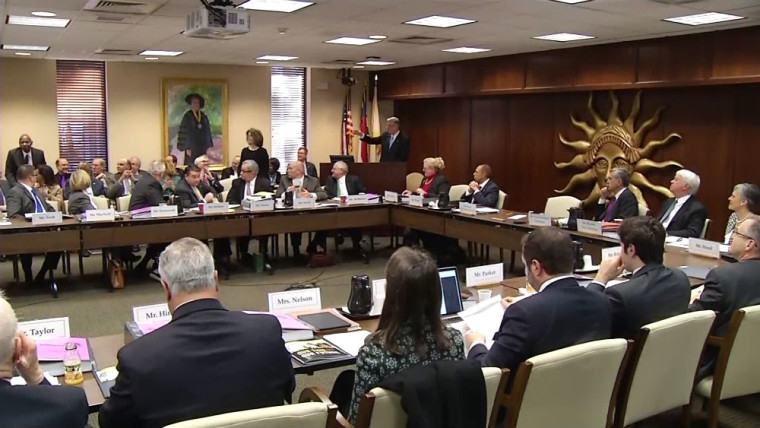Seemingly not content to just ruin K-12 public education, North Carolina Republicans have set their sights on ruining the UNC system. The latest mockery surrounds the presidential search to replace ousted UNC president, Tom Ross. The UNC Board of Governors met last Friday to evaluate the candidacy of Margaret Spellings, former U.S. Secretary of Education under George W. Bush. Legislative leaders and board members complained about the search process leading to mass chaos. The search is only the latest evidence that N.C. Republicans are trying to ruin the UNC system.

For many years, the University of North Carolina remained above the partisan fray. While some Republicans complained over the years about liberal leanings in Chapel Hill or the legislature being too lenient on UNC leaders, the UNC system was not used as a political piñata.
However, this changed abruptly after Republicans took control of the Governor’s mansion and both houses of the legislature. The new Republican leadership appointed Board members with a more partisan stance on the work of the university.
After years of funding decreases (admittedly started under Democratic leadership), N.C. Republicans focused spending on tax cuts and corporate funding leaving higher education and K-12 to languish with poor funding.
After starving the system for funding, the Board of Governors used limited financing, in part, to justify a search for academic centers across the UNC campuses that were not producing sufficiently. The board decided to close 3 centers including, controversially, a poverty center at UNC-Chapel Hill that had criticized Republican leadership. To most outside observers, the closing appeared politically motivated tainting the validity of the board’s decision.
The partisanship of the board escalated with the inexplicable termination of President Tom Ross. Ross, formerly president of Davidson College, was widely respected within and outside the university system.
BOG Chair John Fennebresque botched the firing from beginning to end culminating in a bizarre press conference where Ross was apparently a great president yet the board still wanted a change.
It was embarrassing all around.
Of course, that’s nothing compared to the train wreck of the past week.
First, news came out that the Board would be meeting Friday without the required public notice. Then, news came out that the Board would only be interviewing one candidate (despite recently passed legislation but not yet signed by the Governor that would require the Board interview 3 people).
The comedy of errors continued when Margaret Spellings was leaked as the final candidate.
I should pause to note that I do not criticize the Board for the choice of Spellings if she ends up being the candidate. If I were on the BOG, I would vote no because I believe the UNC president should have more experience in higher education. Yet, she would be no less qualified than Erskine Bowles who was brought in by the previous board.
In fact, I think one could argue their experiences are fairly comparable as both were largely political advisers for much of their public careers.
The inept management of search process has devolved into a complete mess. The President Pro Tempore and Speaker of the House condemned the search process. Board members are calling for Fennebresque to step down. Questions abound about whether open meetings laws were violated. After meeting for several hours, the BOG adjourned without taking any action.
Although at this point, inaction may be preferable to the steps that N.C. Republicans have taken to ruin the UNC system. State legislative leaders may be calling foul now, but they appointed the partisan board members.
The hyperpartisan nature of the Republican leadership’s higher education policy efforts directly created the current dysfunctional environment.
The UNC system was once the crown jewel of the state.
The economic and social advances of North Carolina as the leader of the New South could be directly connected to the impact of UNC.
I don’t know why Republican leaders seem hellbent on breaking the system, but I fear the long term damage that is being done to what was once one of our country’s great higher education systems.

